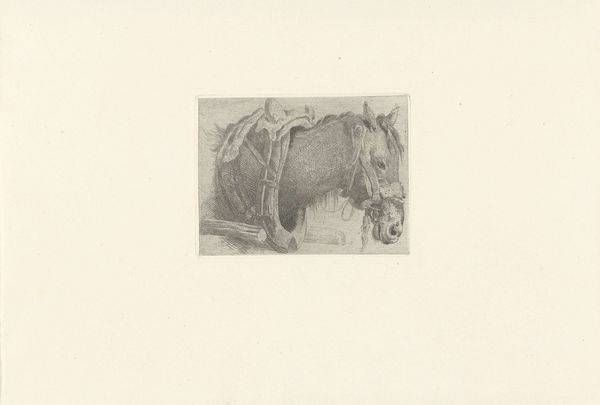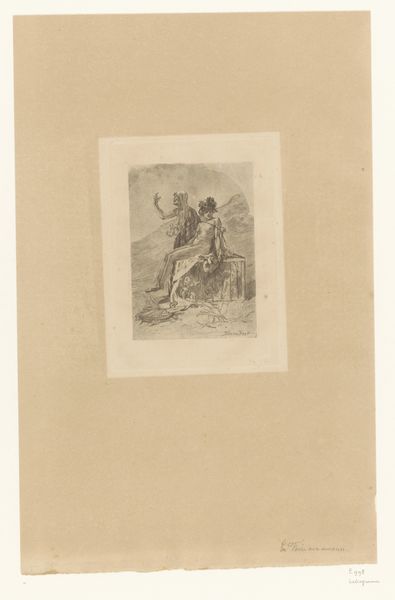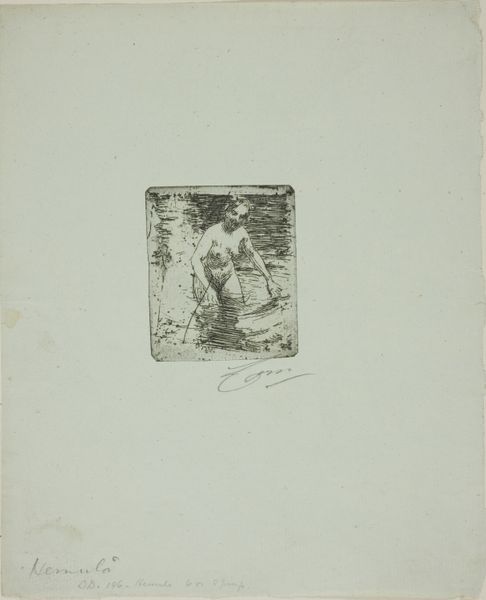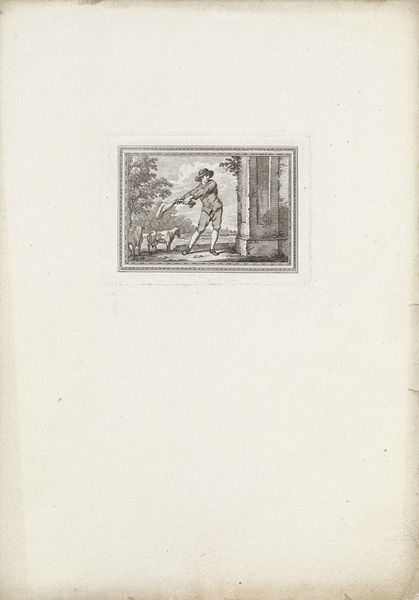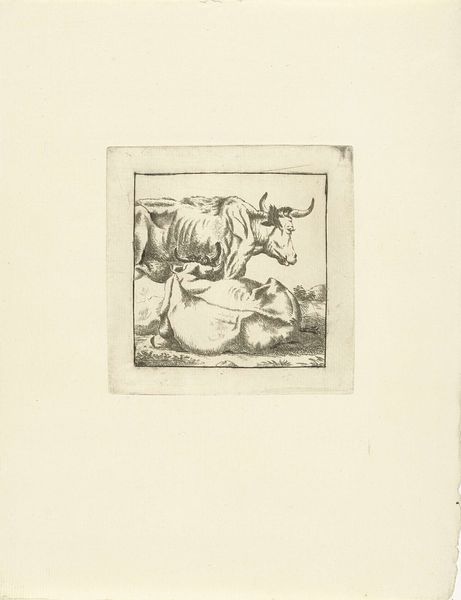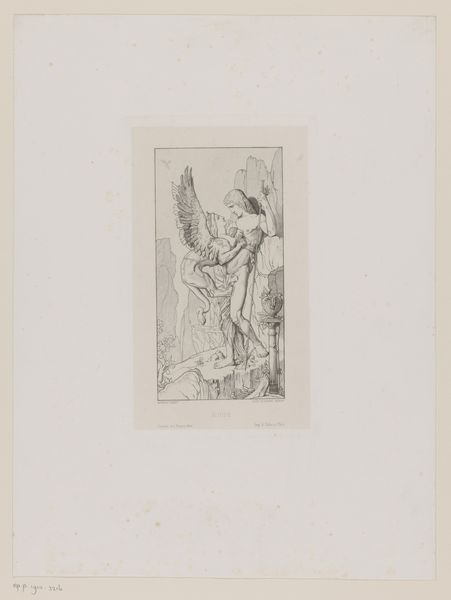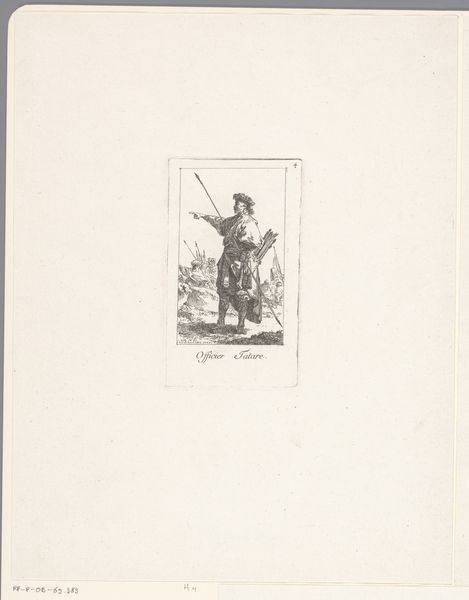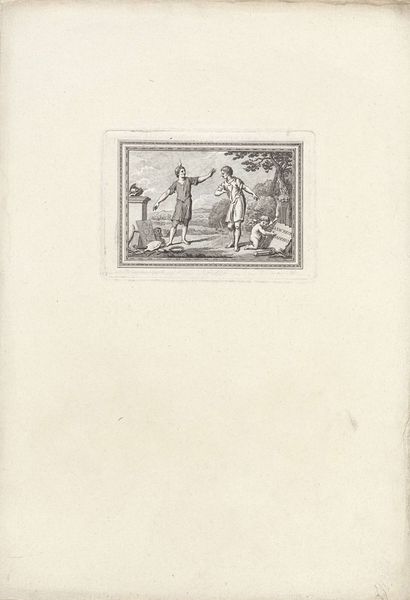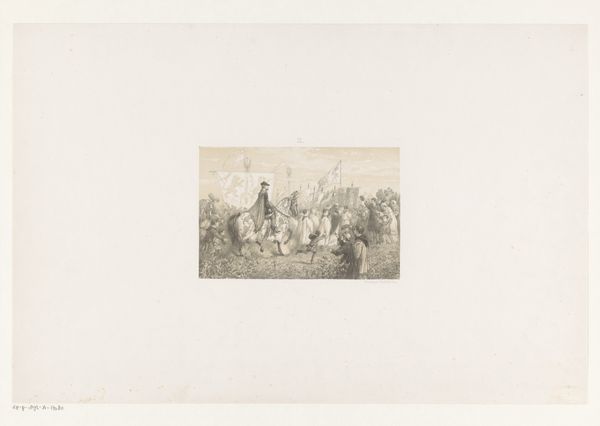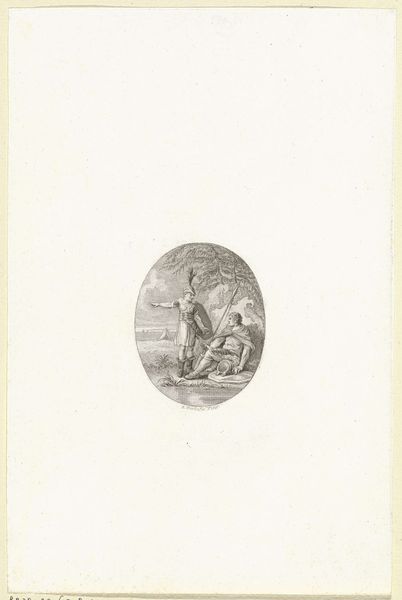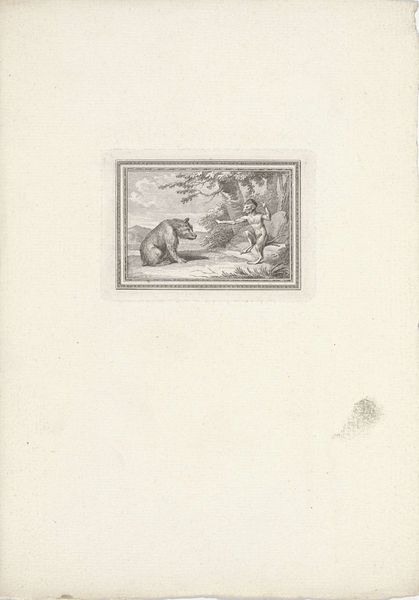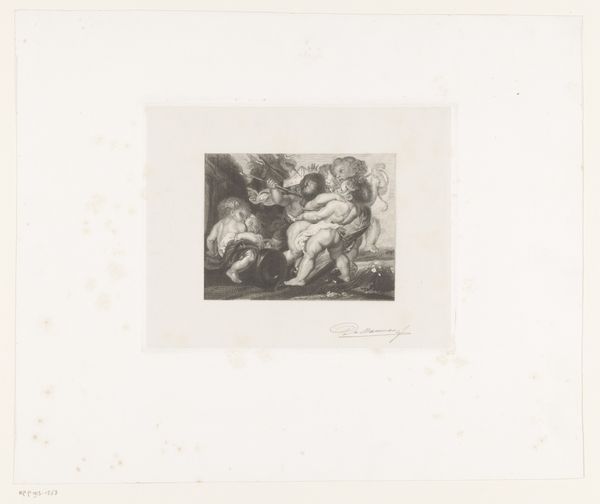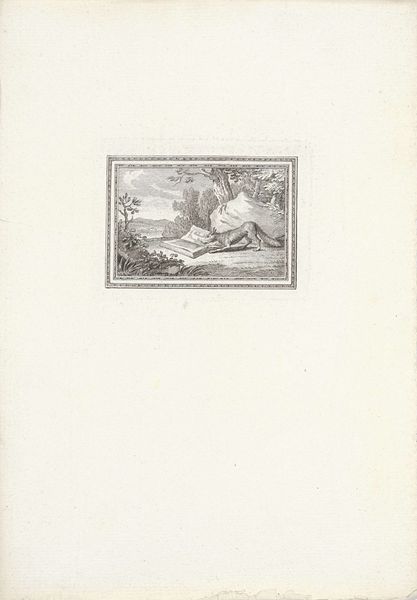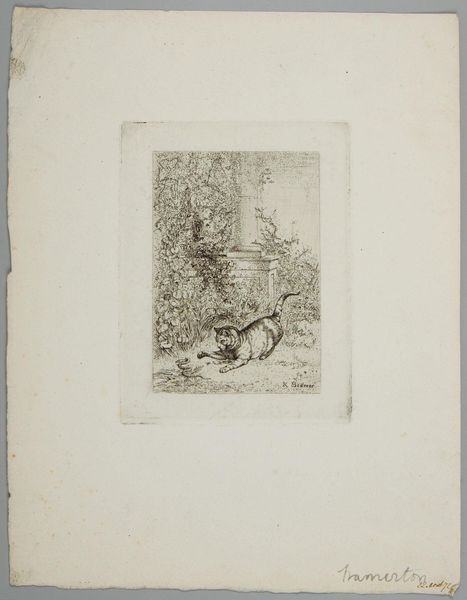
print, etching
#
portrait
#
dutch-golden-age
# print
#
etching
#
realism
Dimensions: height 50 mm, width 73 mm
Copyright: Rijks Museum: Open Domain
Editor: So, this is "Koeienkop," or "Cow's Head," by Pieter Gerardus van Os, dating from 1812 to 1943. It's an etching, quite small. It's remarkable how much detail he manages to get into it with such simple lines. What stands out to you about this particular piece? Curator: Observe the strategic deployment of lines—thick and decisive in areas requiring mass, delicate and ephemeral to suggest shadow and contour. Note how the artist utilizes the etching technique to establish a hierarchy of textures, from the coarse fur around the neck to the smoother plane of the snout. The composition, confined within the rectangular frame, directs the viewer's eye along a precise route. Editor: So you're focusing on how the materials and composition create the image? Is there anything about the form itself that interests you? Curator: Indeed. Consider how van Os leverages the inherent qualities of the etched line to construct the form. The etching is not merely a representational tool but an active participant in the formation of the bovine head. Are we truly beholding a cow, or are we witnessing a carefully constructed orchestration of line, tone, and texture? Editor: That's interesting. It makes you think about the artistry, not just the subject. So it’s the how, not the what, that’s important? Curator: Precisely. It’s not the depiction of the cow, but the articulation of form through the constraints and possibilities inherent in the etching process. This engraving is not about rural life; rather, it functions as a study of shape, contrast, and depth all captured with monochromatic precision. What have you found insightful? Editor: It changed my perspective on it. I wasn’t really thinking about how the printmaking *itself* was part of what makes the artwork significant. Thanks.
Comments
No comments
Be the first to comment and join the conversation on the ultimate creative platform.
